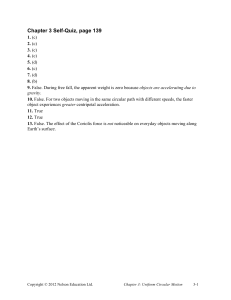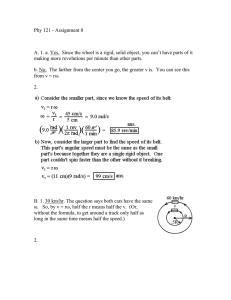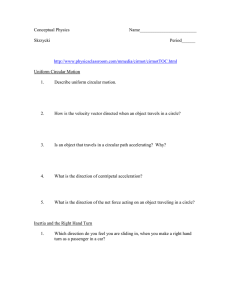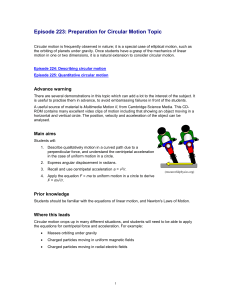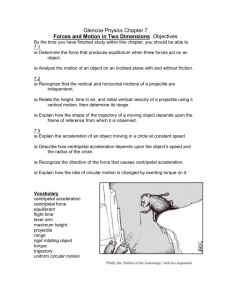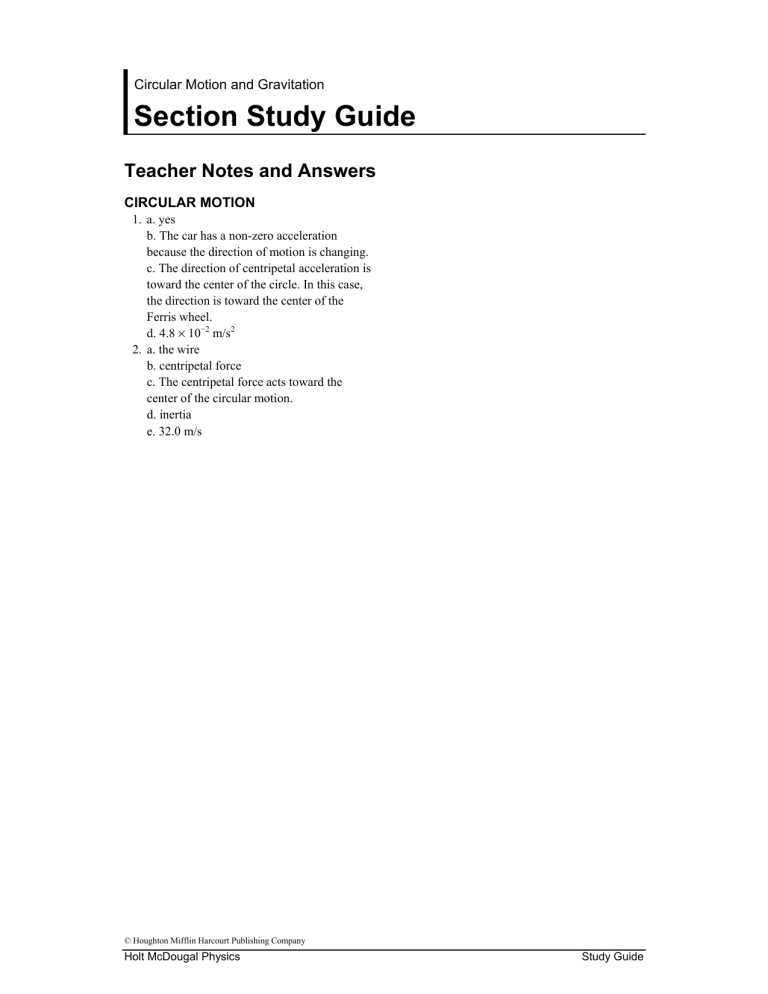
Circular Motion and Gravitation Section Study Guide Teacher Notes and Answers CIRCULAR MOTION 1. a. yes b. The car has a non-zero acceleration because the direction of motion is changing. c. The direction of centripetal acceleration is toward the center of the circle. In this case, the direction is toward the center of the Ferris wheel. d. 4.8 × 10−2 m/s2 2. a. the wire b. centripetal force c. The centripetal force acts toward the center of the circular motion. d. inertia e. 32.0 m/s © Houghton Mifflin Harcourt Publishing Company Holt McDougal Physics Study Guide Name:_____________________________ Class:__________________ Date:__________________ Circular Motion and Gravitation Concept Review Circular Motion 1. A Ferris wheel car is moving in a circular path at a constant speed. a. Is the car accelerating?_____________________________________________ b. How can the car have a non-zero acceleration if the speed is constant? _________________________________________________________________ _________________________________________________________________ c. What is the direction of centripetal acceleration? _________________________________________________________________ d. What is the magnitude of the centripetal acceleration if the tangential speed of the car is 2.0 m/s and the radius of the wheel is 83 m? _________________________________________________________________ 2. The hammer throw is a track-and-field event in which the thrower swings a heavy metal ball (the “hammer”) on a wire in a circular motion, then releases the wire, sending the hammer flying. a. What provides the force to keep the hammer moving in a circle before the wire is released? _________________________________________________________________ b. What is the name for this force? _____________________________________ c. In what direction does this force act? _________________________________ _________________________________________________________________ d. What is the term for the hammer’s tendency to move in a straight line? _________________________________________________________________ e. Suppose the hammer has a mass of 7.26 kg, the wire is 1.00 m long, and the force keeping the hammer moving in a circle is 7.43 × 103 N. What will the hammer’s speed be when the thrower releases the wire? © Houghton Mifflin Harcourt Publishing Company Holt McDougal Physics Study Guide
